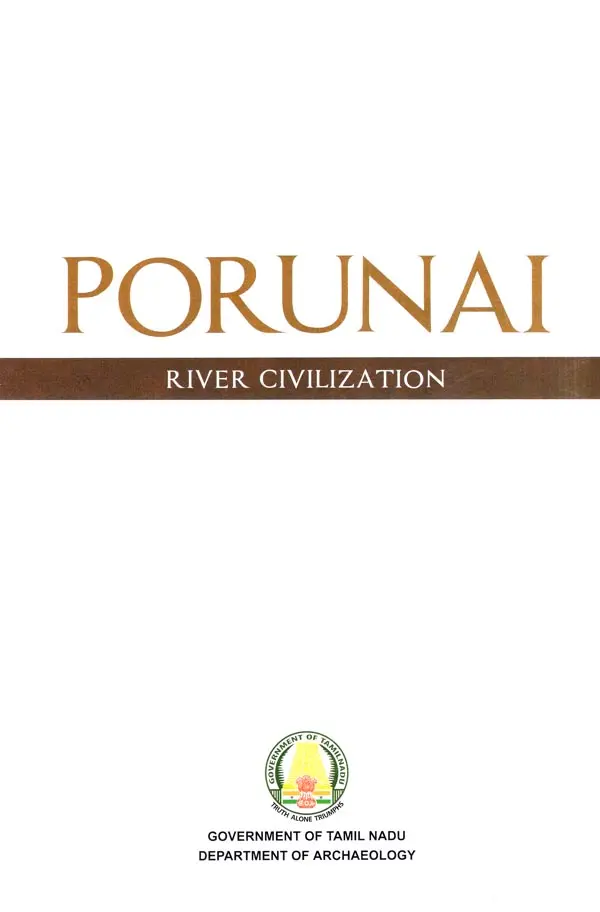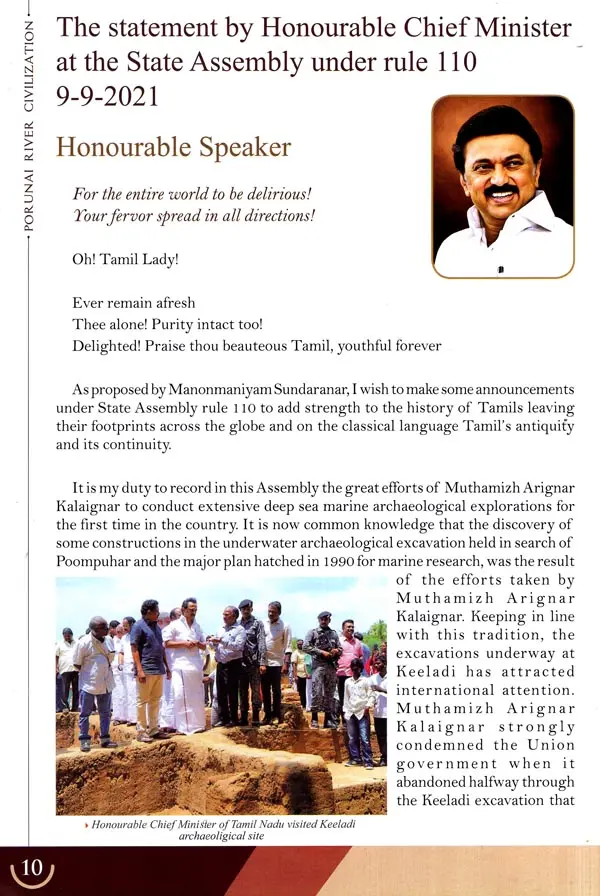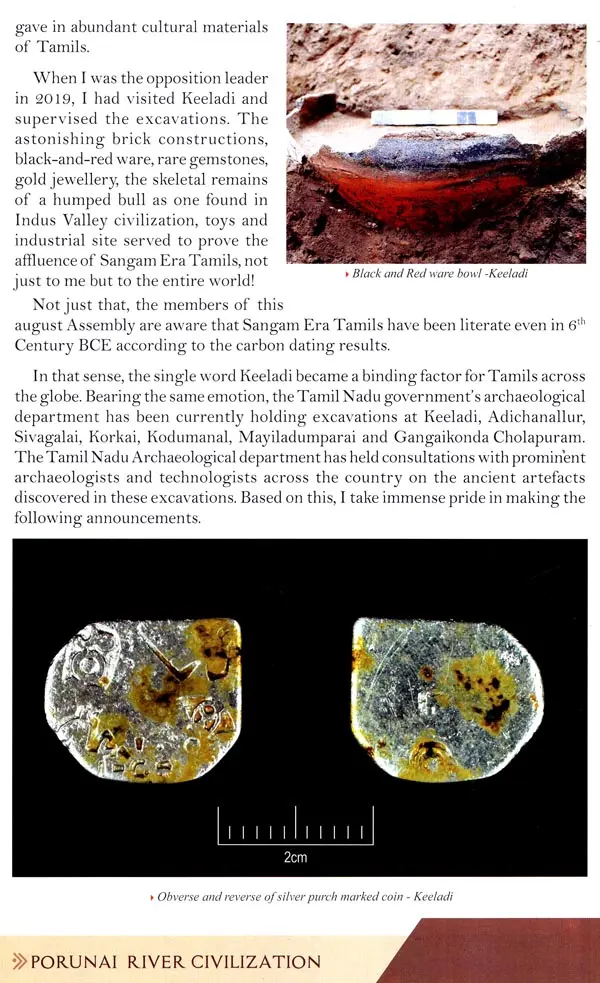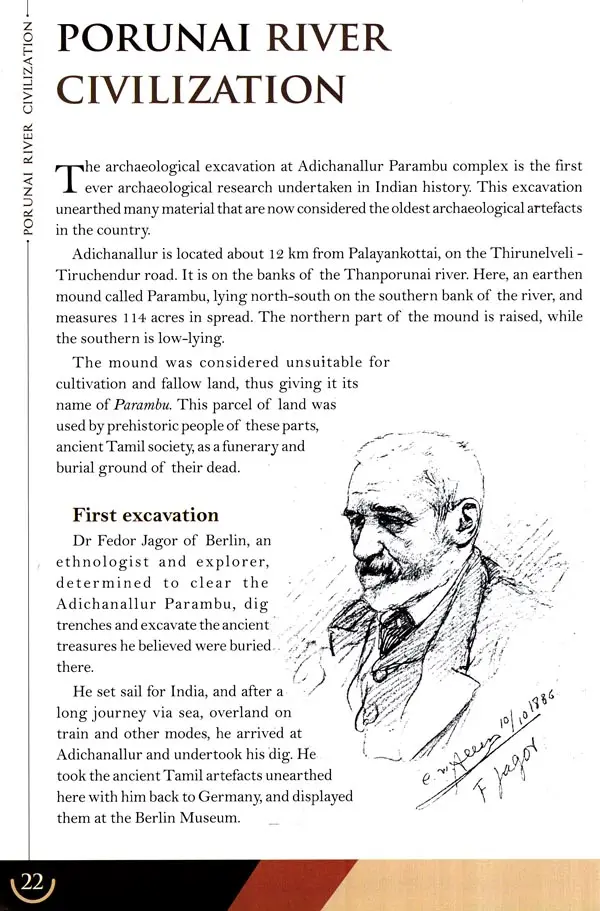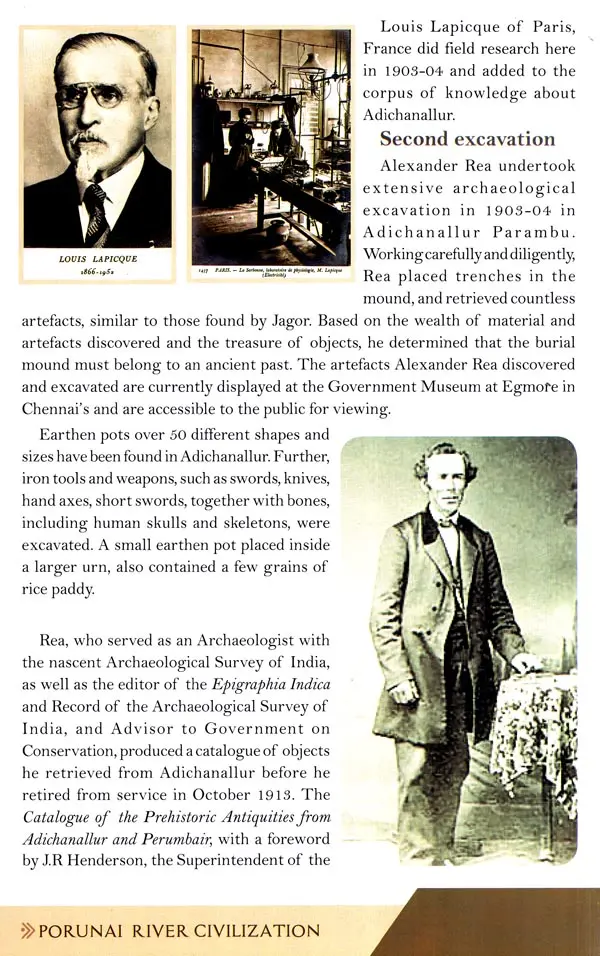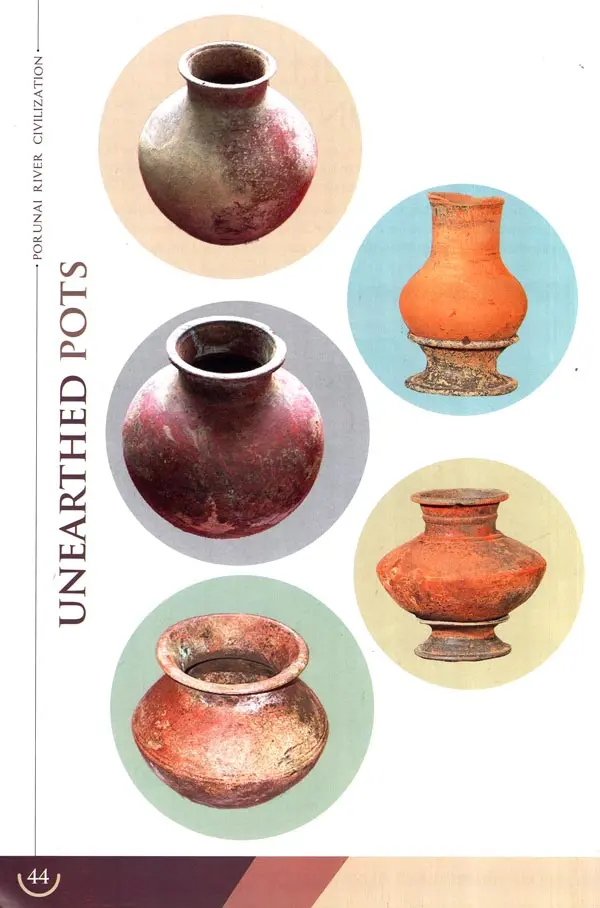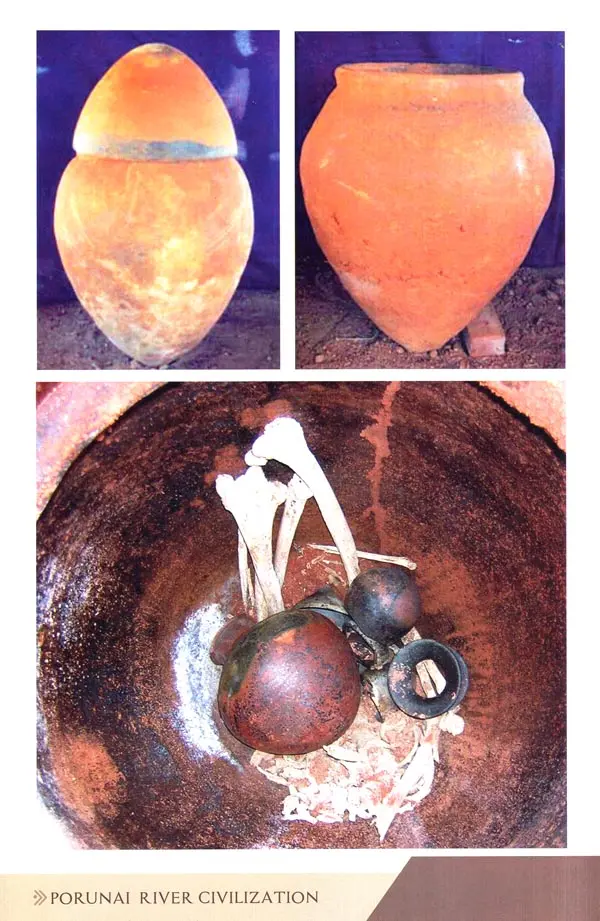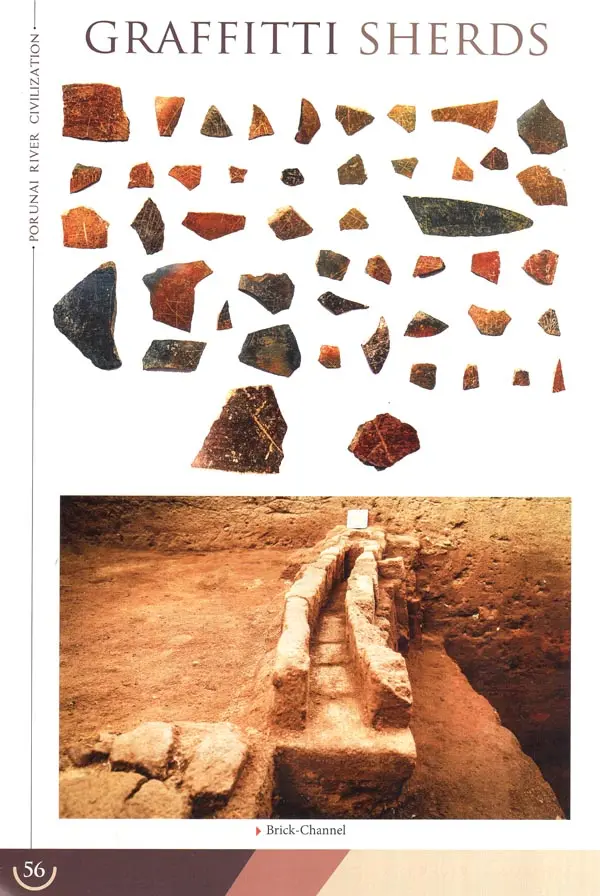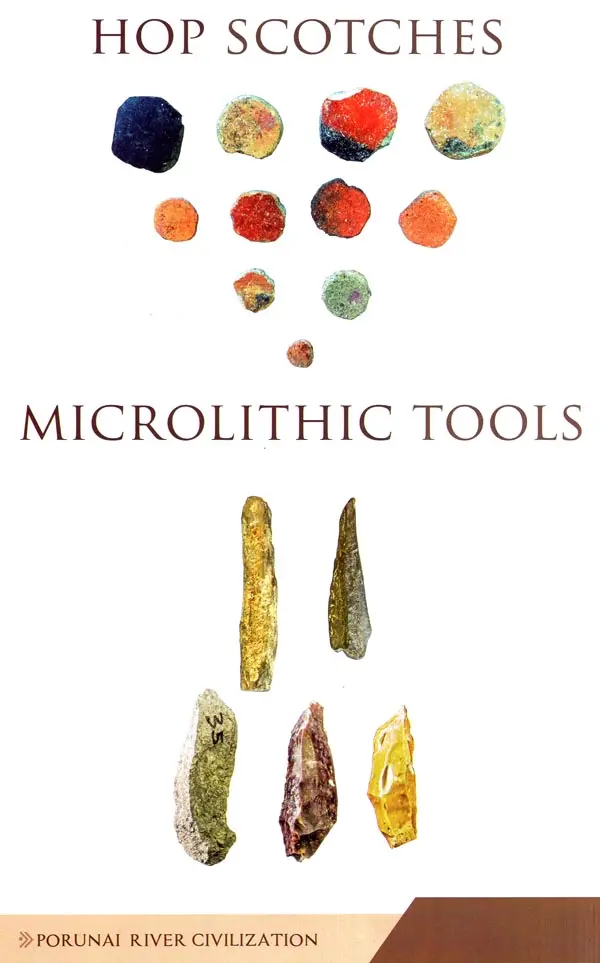
Porunai - River Civilization
Book Specification
| Item Code: | UAT574 |
| Author: | R. Sivanantham and J. Baskar |
| Publisher: | Governent of Tamil Nadu Department of Archaeology |
| Language: | English |
| Edition: | 2022 |
| Pages: | 76 (Color Illustrations) |
| Cover: | PAPERBACK |
| Other Details | 11.50 X 8.00 inch |
| Weight | 280 gm |
Book Description
Tamil land is very ancient. Proper excavations are necessary to scientifically establish the antiquity of Tamil language and the culture of Tamils. The artefacts from excavations and inscriptions left by our ancestors serve as evidences to reconstruct our history. Every villages and hamlets of Tamil Nadu are left with evidences in the form of temples, inscriptions, rock paintings and hero stones Sluices Like wise stand as testimony to our water management techniques. It is our paramount duty to protect these archaeological and historical monuments.
It is a matter of immense pride that Tamil Nadu was the first state across the country to have a State level archaeological department to meet these noble demands. The archaeological department was founded in 1961 to protect the archaeological vestiges and historical monuments, to undertake archaeological excavations in order to write our history and to decipher and publish the as texts of the inscriptions of Tamil Nadu, the number of which is highest in the country.
Going by the adage 'seek wealth, even by riding across the sea', the ancient Tamil society had trade relationships at national and international level. Through various exchanges that was made possible by the trade relationships, Tamil society was not just different but more developed than other societies.
The ports of Sangam Era such as Poompuhar, Korkai, Azhagankulam and Vasavasamudram played an important role in trade relationships. Through these ports, the ancient Tamil society had established trade relations with Western countries and Southeast Asian countries. The Sangam literature mentions the Westerners as yavanas. The Tamil society had trade contacts with Rome, Egypt, Oman and Arabia. The discovery of potsherds engraved with Damili letters, contracts and accounts of foreigners serve as testimony to this.
**Contents and Sample Pages**
